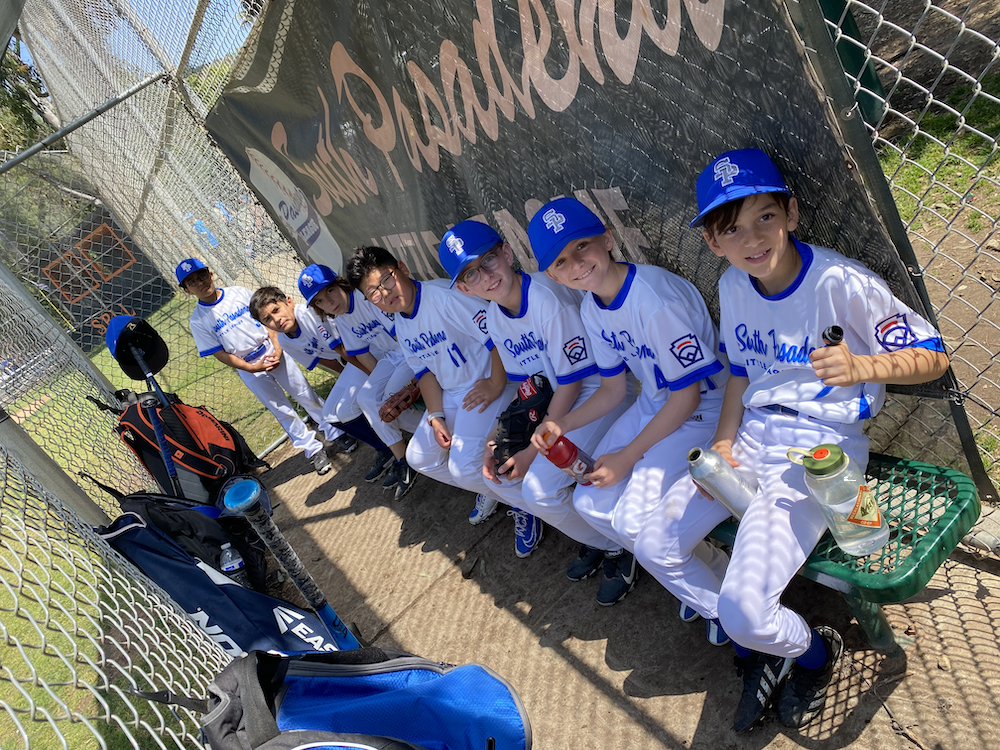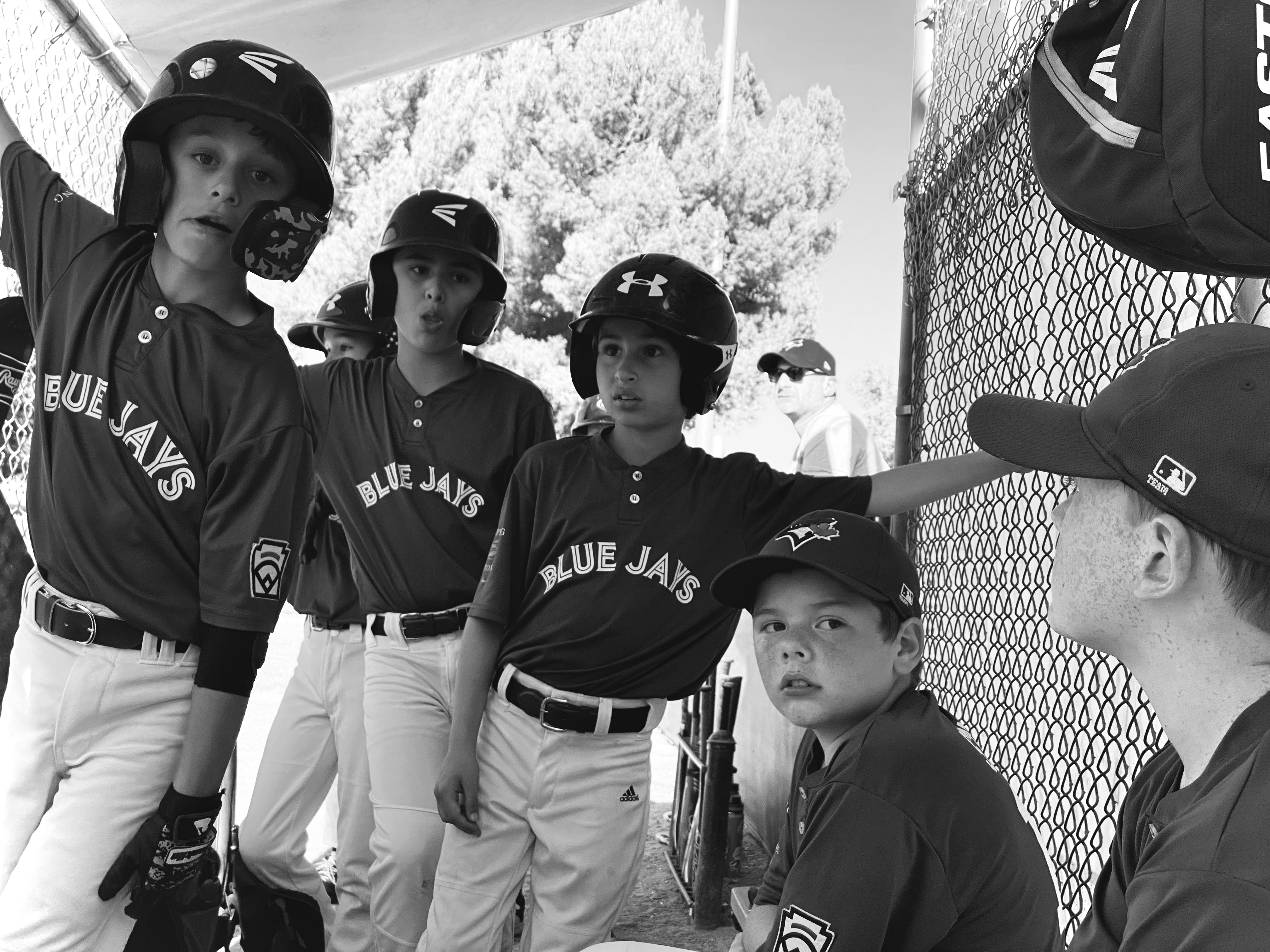The Science of Dugout Chatter (Or Why Silence Loses Games)

Picture this: Bottom of the ninth, two outs, runner on third. The game’s tied and the batter—let’s call him Johnny—steps up. Johnny's nervous. He’s got that “I might cry even if I hit the ball” kinda look in his e
Now, I’m not a scientist, but I’m pretty sure sound waves from a loud dugout can physically push a ball over the fence. On the flip side, silence? That’s the death knell. A quiet dugout is a black hole where momentum goes to die.
Here’s the thing—dugout chatter isn’t just tradition. It’s baseball’s version of group therapy. And it works. Every coach knows the dugout is where legends are made… or where sunflower seeds, gum, and Gatorade end up stuck in your teeth, on the bottom of a cleat, or smudged into an accidental red mustache.
So, let’s dive into the lost art of dugout chatter—what works, what doesn’t, and how to keep your kids from sounding like a New Orleans funeral procession.
Volume is Everything
Listen, I love strategy. But let me be clear—there is no statistical advantage to silence. You know what’s got stats? Noise. Every K, every double, every bunt, and yes, even a strikeout deserves to be celebrated like you just won Game 7.
When my son was 9, he played on a team that couldn’t hit a watermelon with a tennis racket. But man, we had the loudest dugout. Guess what? They did well against teams they statistically shouldn’t have beaten. You think that was coincidence? I don’t.
Rule #1 of Dugout Chatter: Even if the scoreboard looks like a bowling score, keep the volume up. Momentum’s a fragile thing and can turn on a dime. I've seen blowout shutouts turn around in a few plays.
The Classics Never Die (And Neither Does “Hey Batter Batter”)
Baseball’s full of classic dugout chants:
-
"We want a single, just a little single, S. I. N. G. L. E! Single. Single. Single. We want a double, just a little double, D. O. U. B. L. E! Double. Double. Double. We want a triple... We want a homer, just a little homer, H. O. H. O. M. H. O. M. E. R. U. N. Home run hitter! Get back, get back, get back to the radio shack, where the skies are blue and the cows go moo! Moo! Moo! Moo!" This chant builds momentum with its rhythmic intensity—a verbal incantation of success.
-
A great repeat song that is MUCH better than trying to spell out someone's name. "I say number. You say 4. Number 4. Number 4. Number number number, number 4...
-
“Hey batter, batter! Sawing batter!” Timeless, like denim jackets. Add a little Cameron and Ferris flair: "He can't hit, he can't hit, he can't hit!" Transforming it into "E Cannidy, E Cannidy, E Cannidy, sawing batter!" makes it light-hearted and fun.
-
“We want a pitcher, not a belly itcher!” A direct hit to a pitcher’s soul. Effective but requires ethical consideration—encourage positivity over cutting remarks.
-
“Hum baby, hum baby, hum!” No one really knows what this means, but it has undeniable energy that fuels the dugout vibe.
But let’s get creative. Last season, my kids invented a new one:
-
“Do it for the snacks!” (Because nothing motivates like post-game Capri Suns and Oreos.)
Or bring in a little bilingual flair:
-
“Honrón!” (Spanish for "Home run!")
-
I also have a few saying I say over and over to the kids, I like to get them chanting. Things like, "A good throw late is better than a bad throw early!" Not a much fun but it'll keep the crowd guessing.
Don’t underestimate the power of food-based motivation. But remember, keep the chants respectful and positive. Avoid targeting the opposing team or disrupting their plays. And definitely, don’t start any friendly fire by poking fun at your own teammates.
Positive Chatter Only – No Roasting Your Own Team
I once had a kid yell, “C’mon, Brad! Try not to miss this time!” during a game. Now, Brad wasn’t exactly swinging like Shohei, but that’s beside the point.
Rule #2: The dugout’s not for roasts. Leave that for family holidays.
When a teammate strikes out? High fives. When someone botches an easy grounder? “You’ll get the next one.” Look, I’m not saying you need to hold hands and sing “Kumbaya,” but a positive reinforcement goes a long way.
The Bench Mob Mentality
The bench players are the unsung heroes of baseball. You think your shortstop gets to second on a steal without the bench screaming “GET DOWN”? Nope. The bench mob makes the game exciting—even for the kids picking flowers in right field.
Rule #3: Bench players are active players. Just because they aren’t on the field doesn’t mean they stop playing.
Fun fact: the loudest kids in the dugout usually end up being the best teammates. They’re invested, locked in, and ready to play when their moment comes.

Coach Chatter: Set the Tone
If you want a loud, positive dugout, it starts with you, coach. I get it—sometimes you just want to sit on the bucket and wonder how you ended up managing 12 kids who think Gatorade is a food group. But stay loud. Show them the way.
When the dugout sees you cheering for that kid who just struck out, they’ll follow suit. When they watch you laugh after your left fielder forgets what day it is, they’ll relax.
Remember: the kids mirror the coach—so be the mirror you want them to see.
As I've mentioned before there are some rule, but there are some actual real league rules to keeping it positive and staying away from getting down on the opposing team:
Rule 4.06(c): No manager, coach, or player shall at any time, whether from the bench or the playing field, make any move calculated to cause a balk or illegal pitch. The ability for a team to cheer for their batter or runners should not be restricted, unless there is a definite intent to gain an unfair advantage as discussed in Rule 4.06(c). The chanting/cheering must be in good taste and be directed solely at their own team. A good rule of thumb is the chants/cheers may be as loud as the team desires as long as there is no crescendo or shrieking when the pitcher is delivering the pitch. No artificial noisemaking (i.e., pounding on buckets, fences, or air horns) is allowed.
Reward the Noise
Here’s the trick. I make it a point to give the loudest kid each game the ultimate shout-out in front of the team—a big, vocal "MVP of the Dugout" moment. Kids will scream their lungs out for the glory of being recognized as the noisiest motivator. (Honestly, I’d pay good money to harness that energy in real life.)
But you know what? It works. The louder the dugout, the more fun they have. And the more fun they have, the more they stay in the game.
Final Thought: Dugouts Win Games
Look, I’ve coached long enough to know that talent doesn’t always win games—but a loud dugout full of kids who believe in each other? That’s the secret sauce.
Next game, try this: If the dugout’s getting quiet, let them know you're counting on them and they can make the difference.

Back to Home